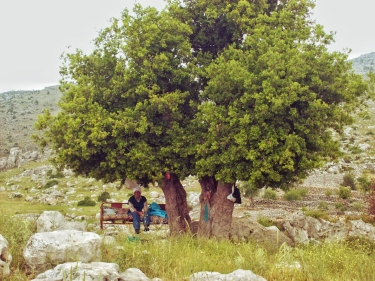Strong law enforcement drives responsible timber businesses in Ghana

It’s a hot afternoon in Ataasi Nkwanta, in the Ashanti region in Southern Ghana. Beads of sweat are trickling down the head of Ernest Anokye, the operations director of a small sawmill called Sir Charles Company Limited.
“It never used to be this hot this time of the year,” says Anokye. “It’s getting hotter every year! But things are changing around here. Recently, our community planted trees to create shade and stop droughts. People are increasingly aware of the benefits of forests in the fight against climate change.”
It’s not just the tropical heat that is making Anokye sweat. In his office are several officers from Ghana’s Timber Validation Department. They are here for a routine audit, to make sure Sir Charles Company Limited complies with relevant laws and regulations.
“We usually first check if all the paperwork is in order” says Frank Ankomah, Head of the Regional Audit Unit of Ghana’s Timber Validation Department. “Businesses need to have a proper business licence, pay their taxes and have updated records of materials along their timber supply chain. We also look at the operations, to make sure there is a safe working environment, that no illegal timber is used in the business, or other illegal practices.”
The checks that Ankomah and his team conduct are part of a wider ongoing effort in Ghana to improve the governance of the forest sector, and safeguard the long-term survival of the country’s forests.
Read the whole story here.


